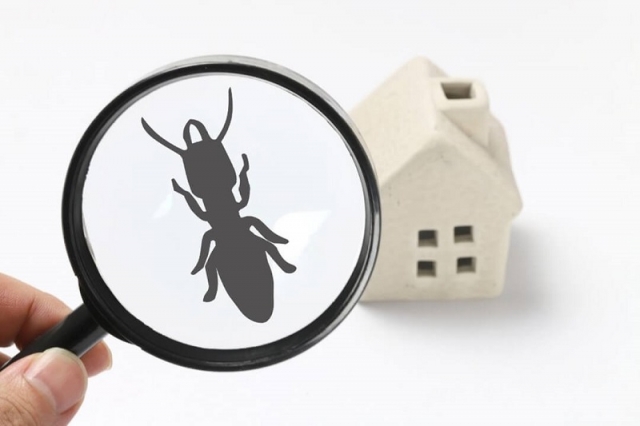Most UK households will encounter pests at some point, whether it's a trail of ants in the kitchen or an unexpected mouse in the loft.
It's an unpleasant experience, but ignoring the signs can make the situation far worse. Pests can damage your property, affect your health, and turn daily living into a constant battle.
This guide will discuss how to recognise the most common household pests, understand their risks, and take practical steps to deal with them.
Understanding Household Pests
Pests often slip into homes unnoticed, but their impact can be significant. Cockroaches and rodents, for example, don't just create discomfort; they spread bacteria and can trigger serious health problems. Rats are also notorious for gnawing on electrical wiring, creating a fire hazard, while termites can weaken timber structures over time.
Spotting pests early allows you to act before these problems escalate, helping you keep your home safe, hygienic, and secure.
Visual Characteristics of Common Pests
Being able to identify pests accurately is the first step towards dealing with them.
Ants are small, ranging from tiny specks to the length of a paperclip, and are typically black or red with narrow waists and bent antennae. Cockroaches, on the other hand, are larger and flatter, with spiny legs and shades that range from light brown to almost black.
Rodents are easier to spot: mice are roughly the size of a teabag, while rats are larger and stockier, both with long tails and prominent ears.
Recognising these characteristics makes it easier to confirm what you are dealing with and decide on the most effective way to manage it.
Signs of Pest Infestations
The earlier you detect pests, the easier it is to stop them spreading. Ants often leave fine trails near doors, windows, or kitchen cupboards, and you might notice small piles of soil around entry points.
Cockroaches tend to leave behind droppings that resemble ground coffee, as well as discarded egg cases and an unpleasant musty smell.
Rodents leave gnaw marks on wood or food packaging and create nests out of shredded paper or fabric, usually in dark, quiet corners such as lofts and basements.
Regular inspections of high-risk areas like kitchens and storage rooms can help you spot these signs before the problem worsens.
Health Risks of Household Pests
Pests aren't just inconvenient—they also threaten your health.
Dust mites and cockroach droppings are known to trigger allergies and asthma, which is a serious concern in the UK, where around 21 million people are affected by allergic conditions. Children and those with weakened immune systems are particularly vulnerable.
Rodents are another major risk, carrying diseases such as Salmonella and hantavirus, which can be transmitted through their droppings.
Cockroaches can also spread bacteria that cause stomach illnesses, with research suggesting that pests are linked to roughly 5% of food poisoning cases in the UK.
Bites are another issue. Fleas and bed bugs cause severe irritation, and fleas, in particular, can carry diseases that affect both humans and pets—a problem for many of the 44% of UK households that own animals.
Addressing pest problems early is the best way to prevent these risks from escalating.
Practical Tips for Pest Prevention
Preventing pests is far easier than removing them once they've settled in. The key is to remove what attracts them and block their entry points.
Start by sealing any gaps or cracks around doors, windows, and where pipes or cables enter the house. Even the smallest openings can let pests in, so using caulk or weatherstripping can be highly effective.
Maintaining a clean home is just as important. Store food in sealed containers, clear up crumbs promptly, and take out the rubbish regularly. Reducing clutter also limits the places where pests can hide and breed.
Routine inspections should be part of your household maintenance. Focus on kitchens, lofts, and storage spaces, checking for droppings or other signs of activity. By staying vigilant, you can deal with problems before they become serious.
When to Call Professional Pest Control Services
While preventive steps can make a big difference, some infestations require expert help. If you see multiple rodents, notice repeated cockroach sightings, or find that DIY methods simply aren't working, it's time to contact a professional pest control service.
A qualified team can deal with pests more effectively, using specialised equipment and treatments that are safe for your home. They can also provide guidance on long-term prevention, reducing the chance of future problems.
Here are some tips for selecting a pest control service:
-
Check credentials. Ensure the company is licensed and certified to meet UK industry standards.
-
Read reviews. Look at feedback from previous customers to gauge reliability and results.
-
Ask about treatment options. If you prefer environmentally friendly methods, choose a provider that offers eco-conscious alternatives.
-
Compare costs. Request several quotes to understand both price and value.
-
Look for guarantees. A satisfaction guarantee shows that the company stands by its work.
Choosing the right service helps ensure the infestation is handled quickly and effectively, protecting both your home and your health.
Eco-Friendly Pest Control Methods
If you're keen to minimise chemical use, there are effective alternatives. Sticky traps can capture insects without harmful sprays, while live traps are ideal for humanely removing mice or rats.
Certain essential oils, such as peppermint, work as natural deterrents against ants and spiders, and planting herbs like mint or basil around the garden can discourage pests from approaching your home.
Simple DIY solutions, like a vinegar and water spray for ants or a mix of baking soda and sugar for small insect problems, can also be effective. These approaches reduce exposure to harsh chemicals while helping to keep your home pest-free.
Conclusion
Pests can be more than just an inconvenience—they can affect your health, your property, and your peace of mind. By learning how to identify them, preventing their entry, and acting quickly when problems arise, you can protect your home and those living in it.
And if the situation becomes too complex to handle alone, calling in a professional pest control service is always a smart step towards a safer, healthier home.






